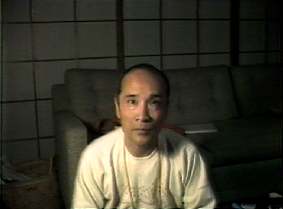 | Born in 1931 in (Japan). Died in 2024 | Biographie Bibliographie |
 | Born in 1931 in (Japan). Died in 2024 | Biographie Bibliographie |
Son of the Japanese philosopher Tanikawa Tetsuzo, Shuntaro Tanikawa was born in Tokyo on 15 December 1931. His work takes many forms: he writes songs for children, personal variations on sonnet form, love poems, prose poems and more introspective texts. Author of more than sixty poetry collections – most of which have been translated into fifteen languages – Shuntaro Tanikawa is perhaps the most prolific and popular Japanese poet of his generation, and the most widely read and studied, both in Japan and abroad. He is also a playwright, scriptwriter (for film, television and radio), photographer, videographer (Video Letters), and translator (of Mother Goose and Peanuts).
His first poems were published in a literary journal when he was just eighteen. Two years later, in 1952, he published his first collection entitled Two Billion Light Years of Solitude, whose simplicity and lyricism made a vivid impression on post-war readers. Shuntaro Tanikawa derives the themes for his work from the banality of contemporary everyday life, and enjoys highlighting its amusing aspects or strangeness.
Shuntaro Tanikawa has received all of the most prestigious literary prizes in his country (Noma, Shogakkan, Hana-Tsubaki, Yomiuri) as well as the American Book Award, which was awarded to him in New York, in 1988.
He has been a member of the Kai magazine since 1953, alongside Ooka and Ibaragi.
“I am so happy looking at ordinary things that I don't need to dream or let myself fantasize. For me, a glass becomes unknown, and hence beautiful, which makes me want to perceive it with precision.” [1]
Lou Svahn
Translated by Anna Knight
[1] La Naissance de la poésie. Entretiens avec Ôoka Makoto, Tokyo, 1975, translated into French by Teramoto Naruhiko.